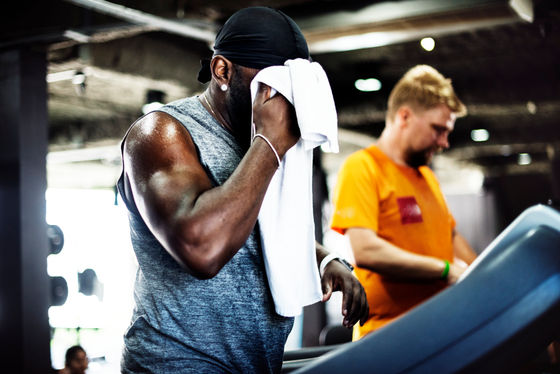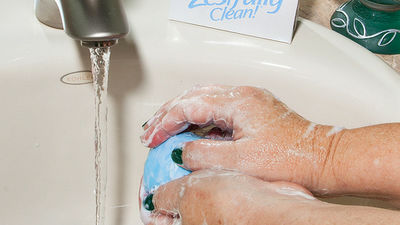Scientists' response to French government's advice to wash sportswear three times

Washing clothes consumes water and energy, and the deterioration of fabrics can also cause microplastics and clothing waste, so the French government is calling for people to refrain from washing clothes frequently for environmental reasons. However, the government's guidelines included guidelines that would raise eyebrows even among Parisians, who are relatively lax about hygiene, such as 'three times for sportswear' and 'seven times for bras,' as the number of times to wear clothes before washing, which caused controversy. Experts explain whether you should wear sportswear that has absorbed a lot of sweat again.
How often should I wash my exercise clothes?
Based on guidelines from the French Environment and Energy Management Agency (ADEME), local daily newspaper Le Parisien has compiled the following washing frequency: underwear should be washed every time, sportswear three times, cotton tops up to five times, dresses up to six times, bras and pyjamas seven times, woolen sweaters up to 15 times, and jeans up to 30 times before washing.
L'Ademe suggère de ne laver ses jeans qu'après 15 utilisations pour des raisons écologiques.
— Le Parisien (@le_Parisien) February 3, 2025
Une pratique prisée par les adeptes du «slow wash» qui font tourner au minimum la machine.
On vous délivre les recommendations de l'Ademe ⤵️
https://t.co/EFg4sS6D9y pic.twitter.com/xI6hA0dw1J
Carolina Quintero Rodriguez, senior lecturer in the Bachelor of Fashion program at RMIT University in Australia, said research has shown that sportswear, especially those made from synthetic fabrics, can harbor significant amounts of bacteria after just one wear.
When clothes are wet with sweat, bacteria multiply much faster, and as the bacteria numbers increase, the clothes start to smell. However, research has shown that incorporating silver nanoparticles or microencapsulated essential oils into fabrics, or applying antibacterial treatments, can effectively suppress bacteria.
Quintero Rodríguez cites the following factors as contributing to the proliferation of bacteria on sportswear:
◆Type of fabric
Natural fibers such as cotton are less likely to support the growth of odor-causing bacteria than synthetic fibers, so sportswear made from natural fibers may be able to be worn several times before needing to be washed.
◆ Exercise intensity and sweating amount
Because bacterial growth is directly correlated to moisture in fabrics, lower intensity exercise that results in minimal or low sweating, such as gentle yoga or walking, may require more washing than more intense exercise.
Season
Weather conditions like temperature, humidity, and airflow have a big impact on how well bacteria grows on fabrics, so in cooler seasons when you're less likely to sweat, it may make sense to wash your clothes less frequently.
◆Personal Health
People with underlying skin conditions, weakened immune systems, or who are prone to skin infections should be more cautious about whether to re-wear their sportswear.

In conclusion, Quintero Rodriguez said, 'If you wear a cotton T-shirt and shorts for light exercise, such as a cool morning walk, you may be able to wear them once or twice if you leave them in a well-ventilated place after taking them off. However, synthetic sportswear or clothes worn for moderate or more intense exercise should be washed after each wear. This is especially true for clothes that come into contact with areas where bacteria can grow, such as the armpits, groin, and feet. Sports bras, underwear, socks, clothes that are obviously dirty or smelly, or clothes worn during vigorous exercise or in the hot sun should always be washed after wear.'
If you plan to wear your clothes multiple times, experts recommend storing them in the following way:
- Hang your clothes out to dry immediately after exercise, turning them inside out to expose the bacteria to air.
- Make sure clothes are completely dry before putting them away.
・Do not leave it in a laundry basket or similar, but store it in a well-ventilated place.
If possible, expose to sunlight.
- Store worn clothes separately from clean clothes.
Related Posts:
in Note, Posted by log1l_ks







